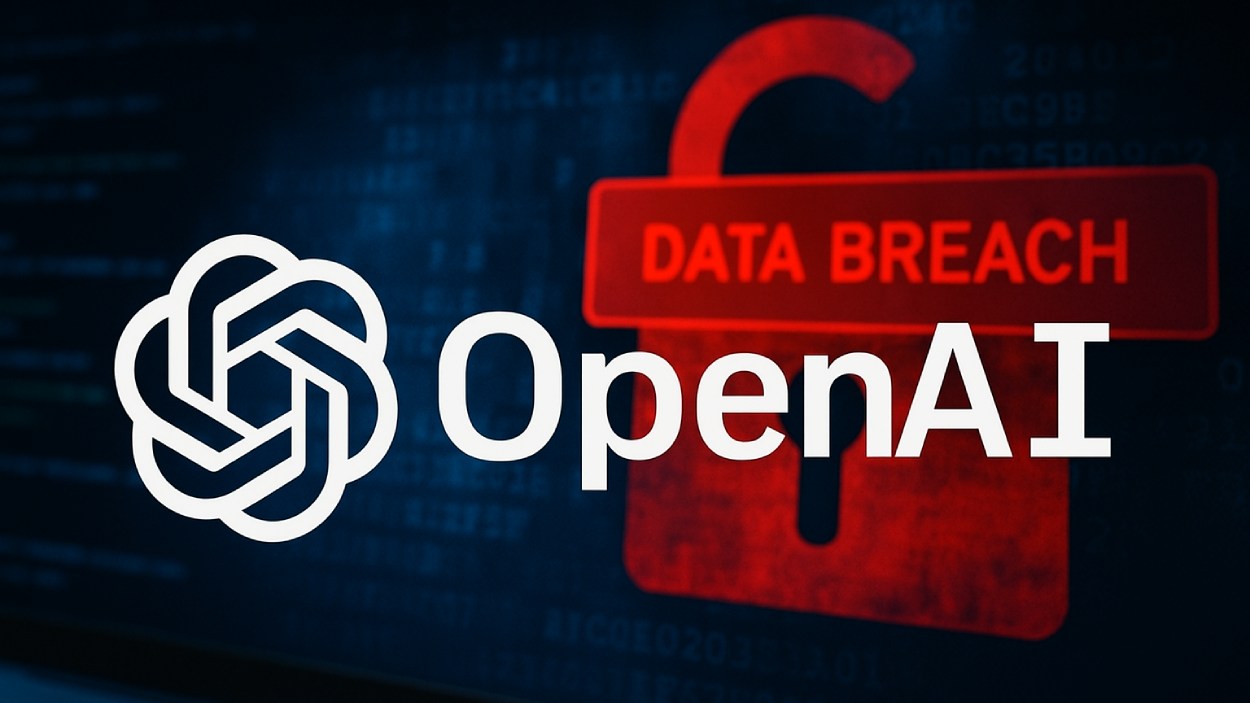OpenAI has confirmed that a third-party breach at analytics provider Mixpanel exposed personal details of users on its API platform.
Quick Summary – TLDR:
- Hackers accessed a Mixpanel dataset exposing OpenAI API user names, emails, and other identifiers.
- OpenAI’s systems were not breached, and ChatGPT users remain unaffected.
- No sensitive data like passwords, API keys, or payment info was exposed.
- OpenAI has removed Mixpanel from its systems and is notifying impacted users.
What Happened?
A data breach at Mixpanel, a third-party analytics provider used by OpenAI, has resulted in personal data exposure of OpenAI API platform users. OpenAI confirmed that while its own systems were not compromised, the breach affected data such as names, email addresses, and other metadata tied to API accounts.
OpenAI has been hacked. If you have used their API services, hackers may now possess your name, location, user ID, and other information. pic.twitter.com/ztXtgXqmqo
— nixCraft 🐧 (@nixcraft) November 27, 2025
OpenAI API User Data Compromised in Mixpanel Breach
OpenAI disclosed the incident on November 27, following notification from Mixpanel earlier in the month. The breach, which occurred on November 9, 2025, involved unauthorized access to Mixpanel’s internal systems. The attacker downloaded a dataset containing customer-identifying details used for analytics.
What Data Was Exposed?
OpenAI clarified that the breach affected only a subset of API users and not those using ChatGPT or other front-end products. The exposed information included:
- Names and email addresses associated with OpenAI API accounts.
- User and organization IDs.
- Browser and operating system details.
- Coarse location data (city, state, country) inferred from user IP.
- Referring websites leading to platform.openai.com.
Crucially, no passwords, API keys, authentication tokens, session data, or payment details were exposed. OpenAI stressed that chat histories, API requests, or usage data were not affected by the data breach.
OpenAI’s Response to the Incident
Upon learning of the breach on November 25, OpenAI took immediate steps:
- Terminated its use of Mixpanel across all production services.
- Reviewed the compromised dataset.
- Began notifying affected users and organizations directly.
- Launched broader security reviews across its vendor ecosystem.
OpenAI stated:
Risks and Precautionary Measures
While the compromised data does not include highly sensitive information, security experts caution that usernames, emails, and metadata can still be weaponized in phishing or social engineering attacks. In particular, credential stuffing attacks could arise if users reused passwords across multiple services.
OpenAI urged affected users to:
- Be wary of suspicious messages or emails with links or attachments.
- Verify that communication claiming to be from OpenAI comes from official domains.
- Enable multi-factor authentication (MFA), especially for enterprise accounts using single sign-on.
The company also reminded users:
Data Breach Timing and Legal Backdrop
The breach occurred shortly after India’s Ministry of Electronics and Information Technology notified the Digital Personal Data Protection (DPDP) Rules, 2025. Although some provisions are already in force, obligations like mandatory user notification will become active only after an 18-month window.
This timing adds to the pressure on global tech companies to tighten data governance policies and vendor oversight in light of evolving privacy laws.
SQ Magazine Takeaway
I think this breach is a serious wake-up call, even if no highly sensitive data was leaked. It shows how vulnerable even top-tier tech companies are when third-party tools like analytics platforms are involved. I appreciate that OpenAI acted quickly, but this should remind all of us to enable MFA, avoid reusing credentials, and scrutinize our vendors. Data security is only as strong as your weakest partner.


































































